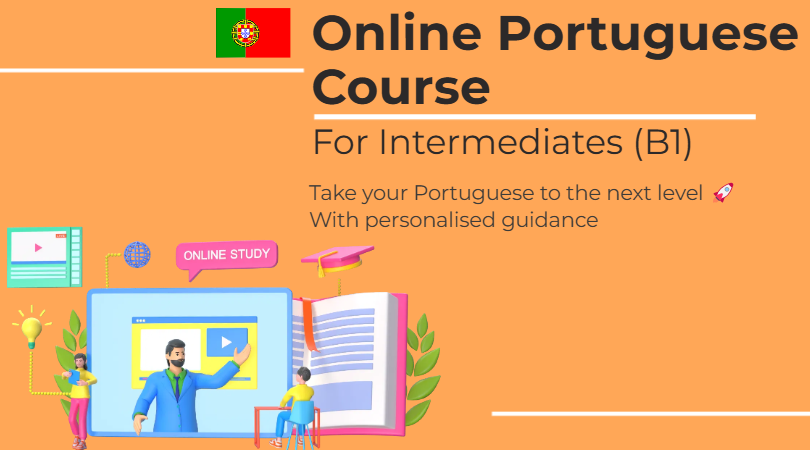Course Overview
European Portuguese B1
Overview
This course aims to help students develop communication, interaction, production, and comprehension skills for moderately and highly complex oral and written texts. Students will enhance their fluency in both everyday and professional situations, using formal and informal registers in written and spoken Portuguese.
Objectives
By the end of this course, students will:
- Write and understand emails and short texts.
- Understand European Portuguese speakers.
- Produce assertive oral communication.
- Achieve effective and fluent communication using the vocabulary developed in this level.
Syllabus
- Unidade 1: Course introduction. Orality and writing. Homonymy, homophony, homography, and paronymy.
- Unidade 2: Review of pronouns. Determiners and quantifiers.
- Unidade 3: Numerical quantifiers. Universal and existential quantifiers. Determiners. Relative pronouns. Indefinite pronouns.
- Unidade 4: Review of past tense verbs in the indicative mood.
- Unidade 5: Past perfect simple and compound in the indicative mood.
- Unidade 6: Present perfect in the indicative mood.
- Unidade 7: Direct and indirect speech.
- Unidade 8: Imperative mood.
- Unidade 9: Passive and active voice.
- Unidade 10: Future verb tenses in the indicative mood.
- Unidade 11: Personal infinitive.
- Unidade 12: Clitic pronouns.
- Unidade 13: Making proposals and counterproposals. Argumentation. Introduction to opinion articles.
- Unidade 14: Text comprehension and production. Letters and emails.
- Unidade 15: Text comprehension and production. Auxiliary verbs (temporal, aspectual, and modal). Idiomatic expressions. Interjections.
Additional information
Teaching-Learning methodology
This course is delivered online within the DAC Learning Virtual Campus. The study material includes pre-recorded lessons with a teacher, practical exercises, and may feature additional videos and audio. The course requires you to do exercises using text files (Word, Docs, etc.). We recommend using Google or Microsoft email accounts to copy the files. The activities will be corrected by a tutor and you will have feedback in approximately one week.
Course access: 150 days from the date of purchase.
Bibliography
- Carla Oliveira. Luísa Coelho. João Malaca Casteleiro. (2014). Aprender português 2. Português para estrangeiros. Nível B1. Editorial Texto Editores.
- Teresa S. Ferreira. Inês Cardoso. Sílvia Melo-Pfeifer. (2020). Gramática Português Língua Não Materna. Níveis B1, B2 e C1. Editorial Porto Editora.
- Reference Websites: «dicionario.priberam.org»,«ciberduvidas.iscte-iul.pt»,«www.conjugacao.com.br».


